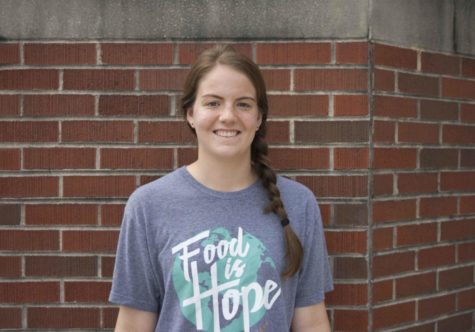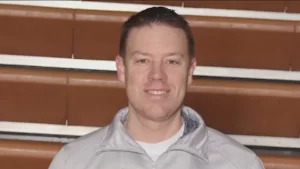Community stands up to climate change
May 14, 2019
The UN warned that the earth has 12 years for global warming to be kept to a maximum of 1.5C before we significantly worsen the risks of drought, floods, extreme heat and poverty for hundreds of millions of people. As humanity reaches the deadline to reverse the effects of climate change, citizens of the Earth must act quickly in order to prevent irreversible damage. DGN students are doing their part to protect the Earth, but there is still more to be done.
April 26 seniors Liam Johnson, Samantha Hicks, Michael Conkright, and Madison Johnson attended the 6th Annual STEM Challenge Showcase. There, they presented their product Soleil, a solar-powered scooter specifically advertised to college students as a method of getting around campus in an eco-friendly way.
“The product would reduce CO2 emissions because it would lower the amount of cars on the road. Although the idea is just a prototype it really showcases how we, as a community and individuals, can make a difference,” Johnson said.
Every year, science teacher Steve Ruffolo and his AP Environmental Science classes conduct a garbage audit in DGN’s cafeteria to sort out what is actually garbage and what is compostable. Although the statistics vary from year to year, Ruffalo reports that anywhere from 50 to 80 percent of the trash is compostable. In addition to composting, Ruffalo wants to encourage students to be more conscious of recycling as well.
“One of the biggest questions I always get asked is ‘does this really get recycled?’ and the answer is yes if it’s not contaminated. The right stuff needs to get in the waste can and the right stuff needs to get into the recycling container. So, any bottles, or cans, or paper, that’s not soiled with food can go in the recycling container whereas paper towels or kleenex need to go in the trash can.”
Meanwhile, the Women in STEM club is devoted to encouraging students with an interest in STEM careers. Although fighting Climate Change is not the goal, they try to do their part to help the earth. With the help of sponsor Jacquelyn Weishaar, the club organized a PBIS lesson on climate change that was shown to the whole school and wrote a grant for solar panels. As of right now, the solar panels are only recording data, which will be presented at a Solarbration May 17.
“I think it’s the first step in hopefully getting more solar in the building,” Weishaar said.
Looking outside of DGN, previously, Americans have been encouraged to recycle their plastic, but China has ceased accepting our recyclables. Weishaar says DGN students should reduce the amount of plastic that they use until the United States begin to recycle plastic.
“There’s plenty of opportunity for us to [recycle], we just have to have the money and the backing to make it more sustainable here in the United States,” Weishaar said.
Additionally, DGN students should reduce carbon emissions by flying less and carpooling more, they should conserve water by taking shorter showers, and they should do their own energy audit at home in order to understand how much energy their household uses. But even then, society as a whole will have to make a change.
“I think that it’s systemic” science teacher Lindsay Panopoulos said. “I think that it’s possible [to undo the effects of climate change] but it takes awareness and it takes individuals to take action, but that from there it needs to get to a higher level.”
DGN students can also fight climate change by being more responsible consumers.
“Consumers drive the products,” Weishaar said. “When you go to the store, you’re telling that company ‘yes, I want this product,’ so, Target, and Walmart, and Jewel are going to buy more of those. And if those companies [selling products to box stores] are not being sustainable, then they are going to continue on with those practices. But if the individual consumers are making the choice to buy eco-friendly products, then that’s telling those big box stores that that is what consumers want. So, [box stores] will buy less from those other companies and more from the eco-friendly ones.”
But it’s not too late to turn back the clock. According to NASA, if we stop emitting greenhouse gases right now, global warming would eventually end, albeit after a few decades and maybe even centuries because excess carbon dioxide would remain in the atmosphere for many, many years. However, we are at the tipping point. In order to prevent the worst effects of climate change such as rising sea levels, an ice-free Arctic, and more devastating hurricanes, we must take action now.
“It’s the biggest thing humankind has ever faced. It’s going to take all of humankind to get out of it. Unfortunately, we’re moving in the wrong direction,” said science department chair Michael Heinz.

























